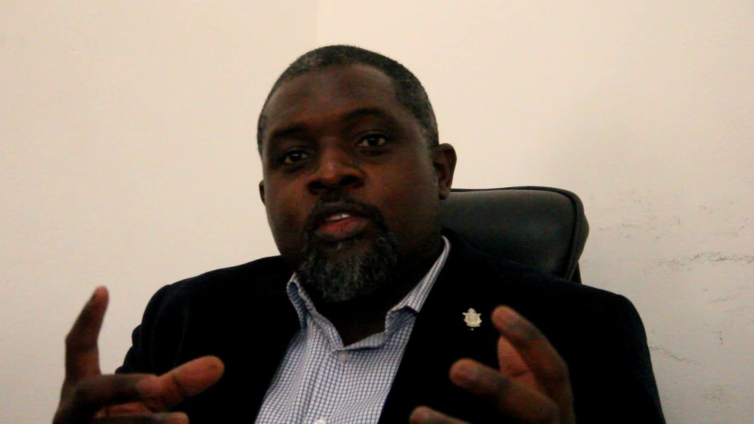Senior Researcher and Fellow at the Kumasi Centre for Collaborative Research, has said that the new discharge protocols the Ghana Health Service has adopted for Covid-19 patients are scientifically in order.
Dr John Amuasi told Joy News the new discharge protocols were recommended by the World Health Organisation (WHO) in a scientific brief report dated June 17, 2020.
One of the new discharge protocols; to discharge persons who are asymptomatic, has left Ghanaians baffled by the GHS’ latest COVID-19 related decision.
There are concerns that the move to discharge asymptomatic cases into the general population may be difficult to manage and monitor.
Dr Amuasi explained that in science, the harder the rule is to follow, the better it is for research.
“It is very difficult for the lay people to appreciate what they call ‘standards are lowered in the name of science’ because the impression is always that the more stringent, the more difficult a rule is to follow, the better that rule is. It sounds counterintuitive,” he said.
What the scientist is interested in, according to Dr Amuasi, is “‘what is the risk of someone who has been discharged being able to spread the infection?’ and there has not been a single piece of evidence suggesting that someone who has had the infection, doesn’t have any more symptoms after 14 days or more has been able to pass the infection on to anybody,” he added.
He also disclosed that it is not unusual for the WHO to recommend such new discharge protocols because the organisation is always reviewing protocols to help countries better deal with a public health crisis.
“For some diseases that have been with us for decades, in fact centuries, like TB, more recently HIV/AIDS and several other infectious diseases, the WHO is constantly reviewing the recommendations.”
“Even for diseases like Buruli ulcers, and other regulated tropical diseases we are constantly researching ways of shortening the time of treatment, ways of keeping people in hospital for much shorter.”
“I can tell you even for disease like human african trypanosomiasis; for which people used to be kept in hospitals for a month or more, now we have treatment that can keep people in hospital for barely 3 days and recover at home on account of very very rigorous research that has been carried out,” he said.
He said that since WHO is much as a scientific body, it is also a diplomatic body and therefore only recommends and does not prescribe so that member states can decide on their own whether they would like to adopt one of the global health body’s protocols as Ghana has done.
Latest Stories
-
KiDi, Joe Mettle, Kwan Pa, others thrill patrons at MTN Festival of Nine Lessons and Carols
6 minutes -
Re-collation: Patrick Boamah wins Okaikwei Central seat
19 minutes -
Re-collation: NPP’s Eric Nana Agyemang-Prempeh declared winner of Ahafo Ano North
21 minutes -
Chaos as Ebi Bright demands total re-collation amid Dafeamekpor fury at EC G/A Office
26 minutes -
NPP’s Charles Forson declared winner of Tema Central seat
1 hour -
Re-collation: Annoh-Dompreh declared winner of Nsawam-Adogyiri seat
1 hour -
Low trust in EC fueling ‘protect the ballot’ mentality among political parties – CDD-Ghana
2 hours -
Ongoing re-collation illegal – Ablakwa
2 hours -
Tema Central re-collation stalls as returning officer cites threats on his family amid chaos
2 hours -
Akufo-Addo grants Presidential Charter to Entrance University of Health Sciences and 13 others
2 hours -
Election re-collation: Go to IPAC and dialogue, says Rev. Dr. Fred Deegbe
2 hours -
We have no knowledge of court petition to halt re-collation – EC
2 hours -
Televising re-collation will boost public confidence in election results – Barker-Vormawor
3 hours -
Re-collation: EC announces NPP’s Patrick Boakye Yiadom as winner of Obuasi East seat
3 hours -
What happened at Tesano collation centre was a disgrace to democracy – Frank Davies
4 hours

